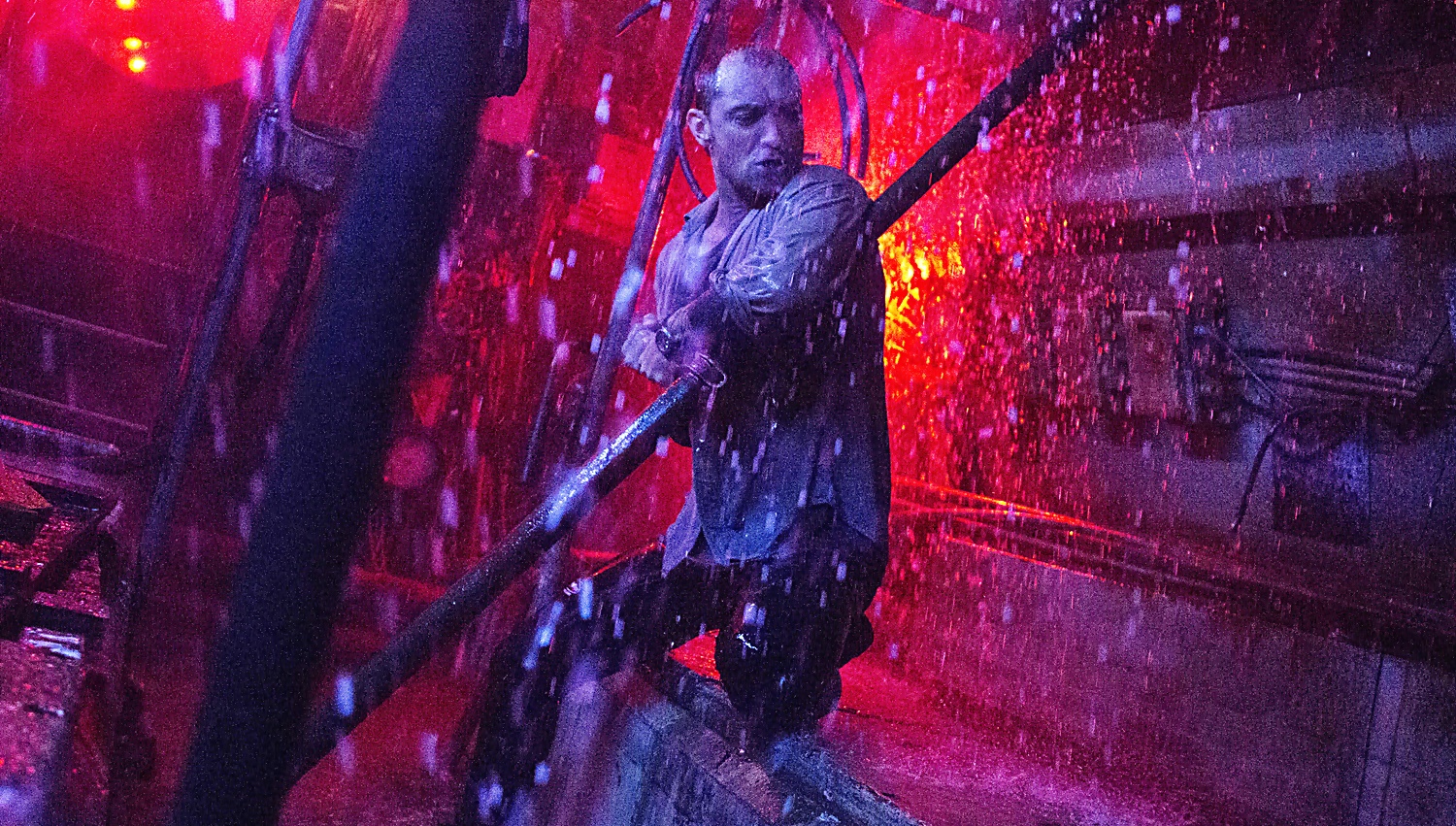
Black Sea
Dustin Chase
In many ways, Black Sea, the new film from director Kevin Macdonald (How I Live Now, The King of Scotland), follows the rules of technical and cinematic submarine film. However, “Black Se”a is also a modern day heist film that redefines the depths of a thriller. Academy Award nominee Jude Law (Cold Mountain, The Talented Mr. Ripley) is one of the most underrated actors of his generation. I am not sure if Law stumbles on picking certain roles, but in the rare ones like Black Sea when he finds the right part, he is stellar. Dennis Kelly is a first time feature film writer, and there are some lose ends and easily persuaded characters that puncture the film’s credibility, yet the suspense is sustained throughout the movie.
Robinson (Law), one of the hardest working men for Agora Naval & Submarine company over the past 15 years, has just been relieved of his position, along with fellow submarine workers who have no other experience and or job opportunities. A colleague brings the idea of going after a sunken Nazi sub near the bottom of the Black Sea which has over 40 million in gold. Captain Robinson works out the logistics needed to retrieve the gold and bringing in a financier, with a half British, half Russian crew. It’s dangerous, risky, and there are many unknowns that face the men willing to risk their lives on bars of gold that could change their if they make it back to the surface. Before they submerge, Robinson makes it clear they will all receive an equal share–and so the greedy minds of men begin to turn.
The cinematography always cuts back to show the scope of the situation, the size of the underwater vessel, and the claustrophobic danger is forever present.
Macdonald has always proven to be an imaginative director that can do a lot with a little. His budgets are modest compared to the journey that he typically takes a viewer on; doing a post-apocalyptic indie film is pretty impressive. Macdonald also understands the rarity of submarine films; unlike the desensitization of car chases, trains, and even planes or boats, a submarine film is difficult to shoot for a large variety of reasons. Even in the midst of suspense and gripping the seat divider, the cinematography always cuts back to show the scope of the situation, the size of the underwater vessel, and the claustrophobic danger is forever present.
One of the tests I always apply to a film, asking myself halfway through, do I know how it will end? A good film will never reveal its conclusion until the end, and Black Sea passes having quite a few twists you never see coming. Nearly the entire journey there is this unforeseen conclusion, and the script plays a great part in that suspense by constantly providing escape plans that are constantly being destroyed. Law’s intensity and lack of playfulness also greatly adds to the film’s momentum. It’s in the script’s treatment of the supporting characters that we find the most problems. Some of the supporting players are giving too much background information (elevating their importance) while other feel like the third guy to die in a horror movie. The paranoia and manipulation element also happens a little too quickly and then spreads like a raging brush fire. Women are given little to no importance in the film, with only Robinson’s wife shown in flashbacks.
Final Thought
Takes the concept of a heist film to thrilling new depths.
